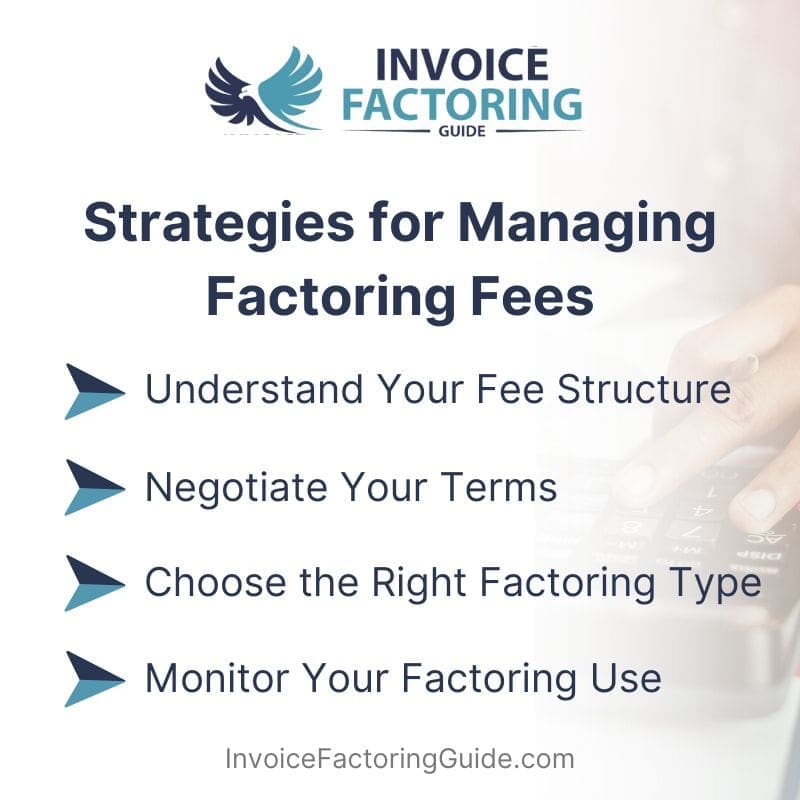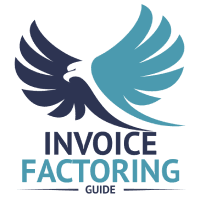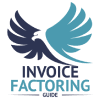
Managing cash flow is a key challenge for small and mid-sized businesses. It often marks the line between growth and stagnation. In fact, cash flow issues cause four out of five small business failures, according to the National Federation of Independent Business (NFIB). This statistic shows the importance of managing cash flow. It also highlights the need for reliable solutions that can address this challenge head-on.
Invoice factoring is one such solution. It lets businesses turn unpaid invoices into immediate capital. This financial strategy can be particularly beneficial for businesses waiting on delayed payments that hinder operational efficiency and growth opportunities. However, factoring fees and agreements are complex. To navigate them well, use a smart approach. That way, factoring helps the business’s finances and doesn’t burden them.
On this page, we’ll explore how you can make factoring fees work for you, turning a potential challenge into a strategic asset for managing cash flow and driving business success.
Understanding Factoring Fees
Managing your cash flow effectively often involves making informed decisions about financial tools like invoice factoring. But before diving into this strategy, it’s essential to grasp the basics of factoring fees and how they impact your bottom line.
What Are Factoring Fees?
Factoring fees are essentially the cost you pay to a factoring company for the service of advancing cash against your unpaid invoices. They vary by factoring company and business, but usually amount to between one and five percent of an invoice’s value.
How Are Factoring Fees Calculated?
Fees vary from one factoring agreement to the next. A few things that impact your factoring fees include:
- Volume of Invoices: Typically, the more invoices you factor, the lower the per-invoice fee. Factoring companies often offer reduced rates for larger volumes of business because it represents a lower risk and more consistent revenue for them.
- Customer Creditworthiness: The fees are also influenced by your customer’s creditworthiness. If your customers are known to pay their invoices on time, the factoring company assumes less risk, potentially lowering your fees.
- Industry: Because businesses within specific industries often offer payment terms, experience similar client payment behavior, and face comparable risks, your industry will also impact your factoring fees.

The Benefits of Invoice Factoring for Your Business
Invoice factoring offers a range of advantages that can significantly improve your business’s financial health and operational efficiency. From providing quick access to cash to enhancing your budgeting and planning, factoring can be a game-changer for managing your cash flow effectively.
Immediate Access to Cash
One of the primary benefits of invoice factoring is the immediate access to cash it provides. Instead of waiting for customers to pay within their 30, 60, or even 90-day payment terms, factoring allows you to receive most of the invoice value upfront. This immediate boost to your cash flow can be crucial for covering daily operational costs, making timely payments to suppliers, or taking advantage of new business opportunities that arise.
- Boost Operational Efficiency: With immediate cash on hand, you can streamline operations, take advantage of early payment discounts from suppliers, and avoid the cost and stress of last-minute financing.
- Invest in Growth: Quick access to funds means you can seize growth opportunities as they arise, whether that’s investing in new equipment, expanding your product line, or entering new markets.
Credit Risk Mitigation
Unfortunately, clients don’t always pay their invoices. Factoring can help you reduce the risk of bad debt or prevent your business from losing money if it happens.
- Reduce Financial Risk: Factoring companies typically conduct thorough credit checks on your customers, providing you with valuable insights into their creditworthiness. That way, you only extend trade credit to customers who are likely to pay in a timely manner.
- Eliminate Financial Risk: Transferring the risk of customer non-payment to the factoring company through non-recourse factoring can protect your business’s financial health and stability.
Administrative Support
Factoring also offers the benefit of administrative support for your accounts receivable management. The factoring company handles collections, saving you time and resources that can focus on your core business activities. This not only improves your operational efficiency but also ensures that your customer payments are managed professionally.
- Streamline Collections: The factoring company’s expertise in collections can lead to more efficient and effective recovery of funds, reducing the time and effort your team spends on chasing payments.
- Focus on Core Activities: By outsourcing the management of receivables, your team is freed up to focus on generating revenue and growing the business, rather than being bogged down by administrative tasks.
Enhanced Financial Planning and Stability
Invoice factoring provides a predictable flow of cash, enabling better financial planning and stability for your business.
- Predictable Cash Flow: With the ability to convert invoices into cash quickly, you can plan your budget and financial strategies with greater certainty, without worrying about unpredictable payment delays.
- Improve Financial Health: The stability that comes from predictable cash flow allows you to maintain a healthier balance sheet, manage debts more effectively, and reinvest in your business’s growth with confidence.
Flexible Financing Solution
Unlike traditional loans, which often come with rigid terms and conditions, invoice factoring offers flexibility to meet your business’s evolving needs.
- No Long-Term Debt: Factoring is not a loan, so it doesn’t add to your business’s debt load. This keeps your balance sheet cleaner and may improve your creditworthiness.
- Scalable Financing: As your business grows and your sales increase, the amount of funding you can access through factoring grows with you. This scalability makes factoring an ideal solution for rapidly growing businesses.
Strategies for Managing Factoring Fees
Effective management of factoring fees is crucial to ensure that the benefits of invoice factoring translate into tangible financial advantages for your business. Below, we’ll cover some strategies to help you keep factoring fees under control and maximize the value of this financial tool.
Understand the Fee Structure

Before entering into a factoring agreement, it’s important to thoroughly understand the fee structure. This knowledge can help you negotiate better terms and avoid any unexpected costs.
- Transparent Pricing: Look for a factoring company that offers clear, straightforward pricing without hidden fees.
- Fee Breakdown: Ensure you know what each fee covers, including service charges, administrative fees, and any penalties for early termination or overdue invoices.
Negotiate Terms
Negotiation is key to getting the most favorable terms for your factoring agreement. Don’t hesitate to discuss your specific needs with the factoring company.
- Volume Discounts: If you anticipate factoring a large volume of invoices, ask for a discount. Higher volumes typically present less risk to the factor, which can justify lower fees.
- Flexible Contracts: Seek agreements that allow for flexibility in the volume of invoices you factor, so you’re not locked into factoring more than you need or paying for unused services.
Choose the Right Factoring Type
Deciding between recourse and non-recourse factoring can significantly impact your fees and the level of risk you assume.
- Recourse Factoring: Generally offers lower fees because your business assumes the risk of non-payment by your customers. This might be preferable if you have reliable customers with a strong payment history.
- Non-Recourse Factoring: While typically more expensive due to the factoring company assuming the risk of non-payment, it provides greater financial security for your business.
Monitor and Manage Your Factoring Use
Regularly review your factoring agreement and how you’re using the service to ensure it remains cost-effective.
- Assess Usage: Periodically evaluate whether factoring still meets your cash flow needs and adjust your usage accordingly.
- Customer Payment Practices: Improve your own invoicing and collection practices to reduce the need for factoring and lower the overall cost.
Optimizing Your Business’s Cash Flow with Invoice Factoring
Effective cash flow management is vital for the health and expansion of your business. When used strategically, invoice factoring can be a powerful tool to optimize your cash flow. A few ways to maximize the benefits of invoice factoring for your business are covered below.
Timely Use of Factored Funds
The immediate cash injection from factoring can be used to address short-term financial needs or to invest in growth opportunities.
- Cover Operational Expenses: Use the funds to pay for daily expenses, such as payroll, rent, and supplier invoices, ensuring your business operates smoothly without hiccups.
- Seize Growth Opportunities: Invest in marketing, new equipment, or inventory purchases to promptly take advantage of market opportunities.
Improving Invoice Management
Efficient management of your invoices can enhance the effectiveness of factoring as a cash flow tool.
- Prompt Invoicing: Issue invoices immediately after delivering goods or services to reduce the time to payment.
- Invoice Tracking: While your factoring company will follow up with clients to collect payments, you can also track and follow up to reduce the average days outstanding of receivables.
Building Strong Relationships with Your Factoring Company
A strong relationship with your factoring provider can lead to more favorable terms and a better understanding of your business needs.
- Regular Communication: Keep your factoring company informed about your financial status and any potential changes in your cash flow needs.
- Negotiate Better Terms: As your relationship with the factoring company strengthens, you may be in a position to renegotiate your terms, potentially reducing costs or gaining more flexible service options.
Leveraging Factoring for Financial Stability
Beyond immediate cash flow needs, factoring can contribute to the long-term financial stability of your business.
- Debt Reduction: Use the consistent cash flow provided by factoring to reduce debt levels, improving your balance sheet and creditworthiness.
- Strategic Financial Planning: With more predictable cash flow, you can plan for the future with greater confidence, investing in long-term growth initiatives.
Evaluating the Right Factoring Service for Your Business
Choosing the appropriate factoring service is crucial for maximizing the benefits of invoice factoring. Not all factoring companies are created equal, and finding the right partner can significantly impact your business’s financial health. A few key considerations to help you select the best factoring service for your needs are covered below.
Understand Different Factoring Services
Start by understanding the various services offered by factoring companies. Some may specialize in specific industries or offer non-recourse factoring, which might be more suitable for your business model.
- Industry Specialization: Look for a factoring company that understands your industry’s unique challenges and opportunities. They can offer tailored advice and services.
- Recourse vs. Non-Recourse: Determine whether you prefer the lower fees associated with recourse factoring or the added security of non-recourse factoring.
Evaluate the Factoring Company’s Reputation
A factoring company’s reputation is indicative of the quality of service you can expect. Research their track record for reliability, customer service, and flexibility.
- Customer Reviews: Check online reviews and testimonials to gauge past and current clients’ satisfaction.
- Industry Associations: Membership in reputable industry associations can be a good sign of a factoring company’s commitment to ethical practices.
Compare Terms and Fees
Carefully compare the terms and fees of different factoring companies. Look beyond the surface to understand the total cost and contractual obligations.
- Fee Structure: Ensure clarity on the fee structure, including any additional charges for services like same-day funding or online account management.
- Contract Terms: Pay attention to the length of the contract, notice periods for termination, and any penalties for early termination.
Assess the Level of Service and Support
The level of service and support provided by the factoring company can greatly influence your experience. Consider how they manage the collection process and interact with your clients.
- Communication: Choose a company that communicates clearly and promptly. You should feel comfortable with how they will represent your business to your clients.
- Support: Look for a factoring company that offers robust client support, including helpful online tools and a dedicated account manager.
Ask for References
Don’t hesitate to ask for references from the factoring company. Speaking directly with their current or past clients can provide valuable insights into what you can expect.
Maximizing the Partnership with Your Factoring Company
Building a strong, productive relationship with your factoring company can lead to more favorable terms, better service, and ultimately, a more positive impact on your business’s cash flow and growth. Let’s review a few strategies to ensure you get the most out of this partnership.
Maintain Open and Honest Communication
Open lines of communication are essential for a successful partnership with your factoring company. Regular updates about your financial needs and business changes can help your factoring partner provide better support.
- Regular Check-ins: Schedule regular meetings or calls with your account manager to discuss your current and future financial needs.
- Transparency: Be upfront about any potential challenges or changes in your business that could affect the factoring arrangement.
Utilize Available Tools and Resources
Many factoring companies offer tools and resources to help you manage your accounts receivable more effectively. Make sure you’re aware of and using these tools to their full potential.
- Online Platforms: Use your factoring company’s online platform for real-time insights into your account status, outstanding invoices, and available funds.
- Educational Resources: Take advantage of any additional resources, advice, or consulting offered by your factoring company to improve your financial management skills.
Provide Feedback
Your feedback is valuable to factoring companies as they strive to improve their services. Providing constructive feedback can lead to enhancements that benefit your business.
- Service Improvement: Let your factoring company know what’s working well and where there might be room for improvement. This can lead to tailored services that better meet your needs.
- Product Development: Your insights can help factoring companies develop new products or services that further support your business objectives.
Leverage Additional Services
Beyond invoice factoring, explore whether your factoring company offers other services that could benefit your business or help you keep more money in your pocket.
- Bundled Services: Using multiple services from the same provider can streamline operations and may lead to cost savings. For instance, some factors offer invoice preparation, too.
- Specialized Solutions: Some factoring companies offer industry-specific services that can address unique challenges faced by your business. For example, freight factoring companies may offer fuel advances, fuel discount cards, load boards, and tire discount programs.
Leveraging Invoice Factoring for Business Success
As we’ve explored throughout this page, managing cash flow is a pivotal challenge for small and mid-sized businesses, standing as a critical determinant between growth and stagnation. The strategic use of invoice factoring emerges as a multifaceted solution to this challenge, offering not just a lifeline during tight financial periods but also a platform for sustained growth and operational efficiency.
Immediate access to cash, credit risk mitigation, administrative support, and enhanced financial planning stand out as key benefits, transforming invoice factoring from a mere financial tool into a strategic asset. By understanding factoring fees and evaluating the right factoring service for your business, you can ensure that this tool aligns with your financial strategy, providing the cash flow support your business needs without undue burden.
The partnership with your factoring company is more than a transactional relationship; it’s a collaborative effort to secure your business’s financial health. Maximizing the partnership with your factoring company by maintaining open communication, leveraging available tools, and providing feedback can lead to more favorable terms and enhanced service, contributing to your business’s success.
To put it simply, invoice factoring, when approached with insight and strategy, can be a significant boon for your business. It offers a way to smooth out cash flow bumps, invest in growth opportunities, and maintain financial stability. By making informed decisions about invoice factoring and managing the relationship with your factoring company effectively, you can turn a potential challenge into a strategic advantage, ensuring your business is well-positioned for success both now and in the future.
Take Control of Your Factoring Journey
Ready to take control of your business’s cash flow and unlock growth opportunities? We welcome the opportunity to match you with a factoring company that offers competitive rates and can meet your needs. To learn more or get started, request a complimentary factoring rate quote.

About Invoice Factoring Guide
Related Articles
Get an instant funding estimate
Results are estimates based on the calculated rate and the total invoice amount provided.
Actual rates may vary.
Request a Factoring Rate Quote
PREFER TO TALK? Call us at 1-844-887-0300










